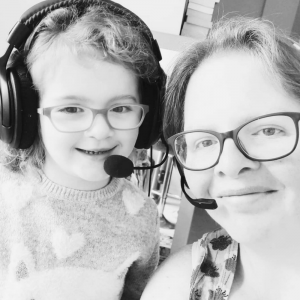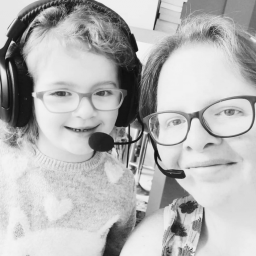Meaningful Business (MB:)Why is it important to look at maternal mental health in the workplace?
Petra Velzeboer (PV:) I know first-hand the risk factors around maternal mental health. I was 23 when I had my son and all the unfinished trauma from my past seemed to visit in the early years of his life. Everyone just says it’s the most magical blessing in the world (of course it is) – but even the health visitors only asked about my physical health and the babies physical health, nothing about my mental health was discussed.
I’d never felt lonelier and more isolated than during that time. I couldn’t tell when my general exhaustion led into postnatal depression, but there was an endless flatness, a tedium and invisibility that probably didn’t have to be there.
We all have mental health just like we have physical health, so creating environments where there is an open dialogue about mental health issues can help us be prepared and react appropriately when someone might be at risk of struggling.
We won’t lose an amazing workforce, instead we will nurture the ones who need support and be repaid with loyalty, trust and productivity. Not to mention, the world of work is changing and it’s just the right thing to do.
MB: What kind of support should a company provide during and after pregnancy?
PV: When women take time off for maternity leave they often face stigma on their return, rather than support. There are unspoken questions about their productivity, their ability to do their job, whether they’ll be able to stay focussed – the list goes on.
What we really need is an understanding of the huge physical and mental adjustments they’re going through, more connection points throughout maternity leave and open and supportive conversations on their return to work.
Everyone will be going through a different process. It can’t be a one size fits all approach. It’s got to be collaborative and tailored to the individual, with workplaces offering resources and education on mental health and flexible working practices to enable a sustainable return.
The key support a company can provide is:
- A culture of psychological safety. Women should feel able to talk about how life changes that come with pregnancy and motherhood are impacting them specifically
- Open communication. This will help companies learn from their employees and be better informed about what resources to provide
- Your intranet can hold key content on maternal mental health.
- You can offer to call a counsellor to support the adjustment process after the birth, or even months down the line. This should be offered as a supportive preventative measure, and not just when someone reports depression or postnatal crisis
- A network of other parents/ mentors. Larger companies can put together support groups of people who have had similar experiences, so that they can be reassured that they are not alone or forgotten while looking after their child
- Flexible working practices. This should become the norm these days, and not just for mothers. This allows people’s work to be judged on their output – not just on the hours they put in. A policy that is clear and consistent will help new parents know where they stand
- A generous paternal leave package. Maternal mental health can be impacted not only by physical and environmental factors, but also their relationships. This can help couples manage the changes they’re going through
- Offering childcare benefits, especially for single parents. Doing so can be an effective way to create a culture of support.

Petra Velzeboer, Founder & CEO, PVL
MB: What more can be done to protect the mental health of returning mothers in the workplace?
PV: So often, I see return to work conversations go something like this:
HR: ‘So how are you feeling?’
Mother: ‘I’m OK. I’m ready to come back and make a difference!’ (Often feeling like any other response may make them look less committed than before).
HR: ‘That’s great. Is there anything you need to help make the transition go smoothly?’
Mother: ‘I just need a heads-up on any developments in my role, but other than that I’m all good! (Again, feeling like any other response will take her off the promotion track).
Mothers often think they need to reassure their workplace that they are fine and act as if nothing has changed. Colleagues may coo over pictures of the baby, wanting to find out about the mother’s physical health and if the baby is sleeping. The mother makes it a habit to often joke about the lack of sleep, and generally put on a show of everything being back to normal – like they’ve been on some kind of long vacation before returning to find they need to hit the ground running to get up to speed.
What we need are cultures that understand the range of experiences women may have. The type of birth, support networks, other children, work pressures, ongoing health issues, pre-existing mental health issues, support needs etc.
We need cultures where we can ask about mental health, not just to mothers but to everyone. We need to understand that mental health can fluctuate due to stressors in our lives – and giving birth is a major stressor. Miscarriages and IVF cycles are also major stressors that we should openly support.
MB: How can we build more of a social support structure within a company for new mothers?
PV: Any social support should be authentic and fit-for-purpose within your industry. I’ve seen many companies offer a tickbox solution which fizzles out over time as people can sense that it’s just a mechanism to say something has been done.
What we need for these groups is clear leadership. Someone who has the experience and is passionate about the purpose and value of the group. A confidential place for honest reflection and sharing of ideas and resources can be invaluable to an individual feeling supported at work.
Ideally the leader should collaborate with the beneficiaries of the group to evolve it to work most effectively for them. This should be revisited several times a year through a focus group or survey to ensure the group grows with the business and continues to offer the value you intended.
MB: What is your advice to female employees and entrepreneurs who are returning to work as a new mother?
PV: There are many more female entrepreneurs these days. While this lifestyle is incredibly intense, it also means you can create your own flexible hours that work around your home life. Building my business with two children has meant I could stop when they needed me and work later in the evening when necessary, without being judged or questioned. Even now, as CEO of a growing business, I lead by example in flexi-work by switching off early on Fridays and making up for the time where it most suits me.
This gives permission for my team to do the same, to work around their own lifestyles and be judged on their output, not by clocking in from the traditional 9-5.
For employees, see if there are allies higher up in the business who can provide insight into what it’s like to be a parent in your company. There may be resources that you don’t know about unless you ask.
There are still many old-school industries where it can be incredibly difficult to prove yourself as a woman, much less as a new parent. I don’t want to sit here and say there is no stigma, or if you just ‘lean in’ you will have the support you need in this incredibly challenging transition in your life.
I do know that we can take ownership of our path and learn about how our mental health may be affected. Nobody talked to me about depression or how my mindset may be impacted by the birth of my son.
I had to figure it out for myself, whilst in a sea of competitive parents all putting on the mask that they knew what they were doing – making me feel even more like I was a failure, an abnormality and should hide my feelings in shame. That shame made me much worse than I needed to be. I continued to hide how I felt for fear of the intense judgement that women often get. This led me to alcohol addiction which perpetuated my shame and my crisis. I had to completely crash before I learnt to open up and ask for help.
No matter what business you’re in, or what approach you take, your mental health as a parent is paramount! Learn about your own mental health, practice looking after yourself and communicate what’s going on for you with a trusted friend, partner or professional. These steps will enable you to enjoy the journey, as well as put you in good stead to support the mental health of your child.




















